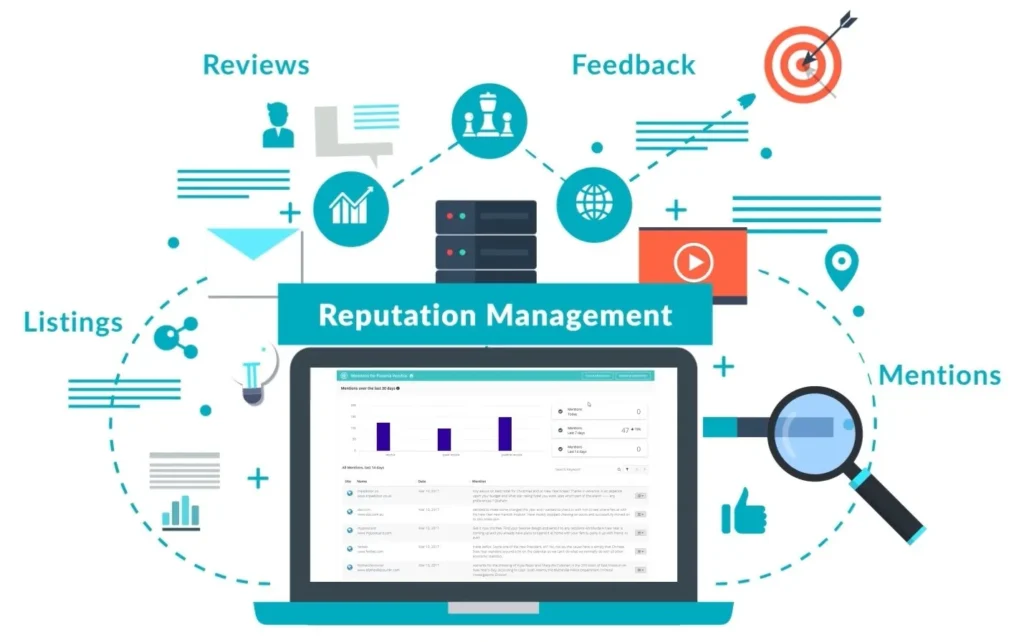Steps to Enhance Your Brand’s Reputation with Online PR
In the digital age, managing your brand’s reputation through effective Online PR (Public Relations) strategies is crucial for fostering trust, building credibility, and maintaining a positive perception among your target audience. Online PR encompasses various tactics and approaches to influence public opinion and enhance brand visibility across digital channels. Here are strategic steps to elevate your brand’s reputation using Online PR effectively.

1. Define Your Online PR Objectives
Begin by defining clear objectives for your Online PR efforts. Determine what you aim to achieve, whether it’s increasing brand awareness, improving online reputation, managing crises, or positioning your brand as a thought leader in your industry. Establishing measurable goals allows you to align your PR strategies with overarching business objectives and track progress effectively.
2. Conduct a Reputation Audit
Before implementing Online PR strategies, conduct a comprehensive audit of your brand’s current online reputation. Monitor mentions, reviews, and sentiment across social media platforms, review sites, forums, and news outlets. Identify any existing issues, negative feedback, or misconceptions that may impact your brand’s reputation. This audit provides insights into areas needing improvement and informs your PR strategy moving forward.
3. Develop Compelling Content and Messaging
Craft compelling content and messaging that reinforces your brand’s key messages, values, and unique selling propositions (USPs). Create a content calendar outlining topics aligned with your brand narrative and industry trends. Publish thought leadership articles, case studies, press releases, and blog posts that showcase your expertise, achievements, and contributions to your industry. Consistent, high-quality content enhances credibility and establishes your brand as a trusted authority.
4. Build Relationships with Media and Influencers
Forge relationships with journalists, bloggers, industry influencers, and online personalities who cover topics relevant to your brand. Engage with them authentically by commenting on their posts, sharing their content, and offering insights or expert opinions. Pitch story ideas, press releases, or guest contributions that align with their audience interests and provide value. Cultivating these relationships can result in media coverage, guest appearances, and endorsements that enhance your brand’s visibility and reputation.
5. Monitor and Manage Online Conversations
Monitor online conversations about your brand in real-time using social media monitoring tools and Google Alerts. Respond promptly to comments, mentions, and reviews, whether positive or negative. Address customer inquiries, acknowledge feedback, and resolve issues transparently and professionally. Managing online conversations demonstrates responsiveness, accountability, and a commitment to customer satisfaction, positively impacting your brand’s reputation.
6. Leverage Social Media for Engagement
Utilize social media platforms strategically to amplify your Online PR efforts. Share compelling content, updates, and announcements across LinkedIn, Twitter, Facebook, Instagram, and relevant industry forums. Engage with followers, participate in discussions, and leverage hashtags to extend your reach and foster community interaction. Encourage user-generated content (UGC), testimonials, and reviews that showcase positive experiences with your brand, enhancing social proof and credibility.
7. Monitor and Respond to Crisis Situations
Anticipate and prepare for potential crises by establishing a crisis communication plan as part of your Online PR strategy. Monitor industry trends, public sentiment, and emerging issues that may impact your brand reputation. Act swiftly and decisively during crises, providing transparent communication, addressing concerns, and offering solutions proactively. Maintaining open lines of communication and demonstrating empathy can mitigate reputational damage and preserve trust among stakeholders.
8. Measure and Analyze PR Campaign Performance
Implement metrics to measure the effectiveness of your Online PR campaigns and initiatives. Track key performance indicators (KPIs) such as media mentions, website traffic, social media engagement, sentiment analysis, and brand sentiment scores. Analyze data to assess the impact of PR efforts on brand perception, audience reach, and conversion rates. Use insights to refine strategies, optimize content performance, and allocate resources effectively for future campaigns.
9. Embrace Thought Leadership and Industry Participation
Position your brand as a thought leader by actively participating in industry events, webinars, podcasts, and speaking engagements. Share insights, research findings, and innovations that contribute to industry knowledge and conversations. Engage with industry associations, professional networks, and online communities to showcase your expertise, build credibility, and foster relationships with peers and stakeholders.
10. Adapt and Evolve Your Online PR Strategies
Stay agile and adaptive in your Online PR approach to respond to evolving industry trends, consumer preferences, and digital landscape changes. Continuously evaluate feedback, monitor competitors’ PR activities, and explore emerging platforms or technologies to stay ahead of the curve. Adapt your strategies based on data-driven insights, audience feedback, and market dynamics to maintain a positive brand reputation and drive sustained growth.
By implementing these strategic steps, brands can enhance their reputation through effective Online PR initiatives that build credibility, foster positive relationships, and differentiate themselves in competitive markets. Leveraging digital channels, compelling content, proactive engagement, and strategic partnerships enables brands to shape public perception, amplify brand visibility, and achieve long-term success in the digital era.

